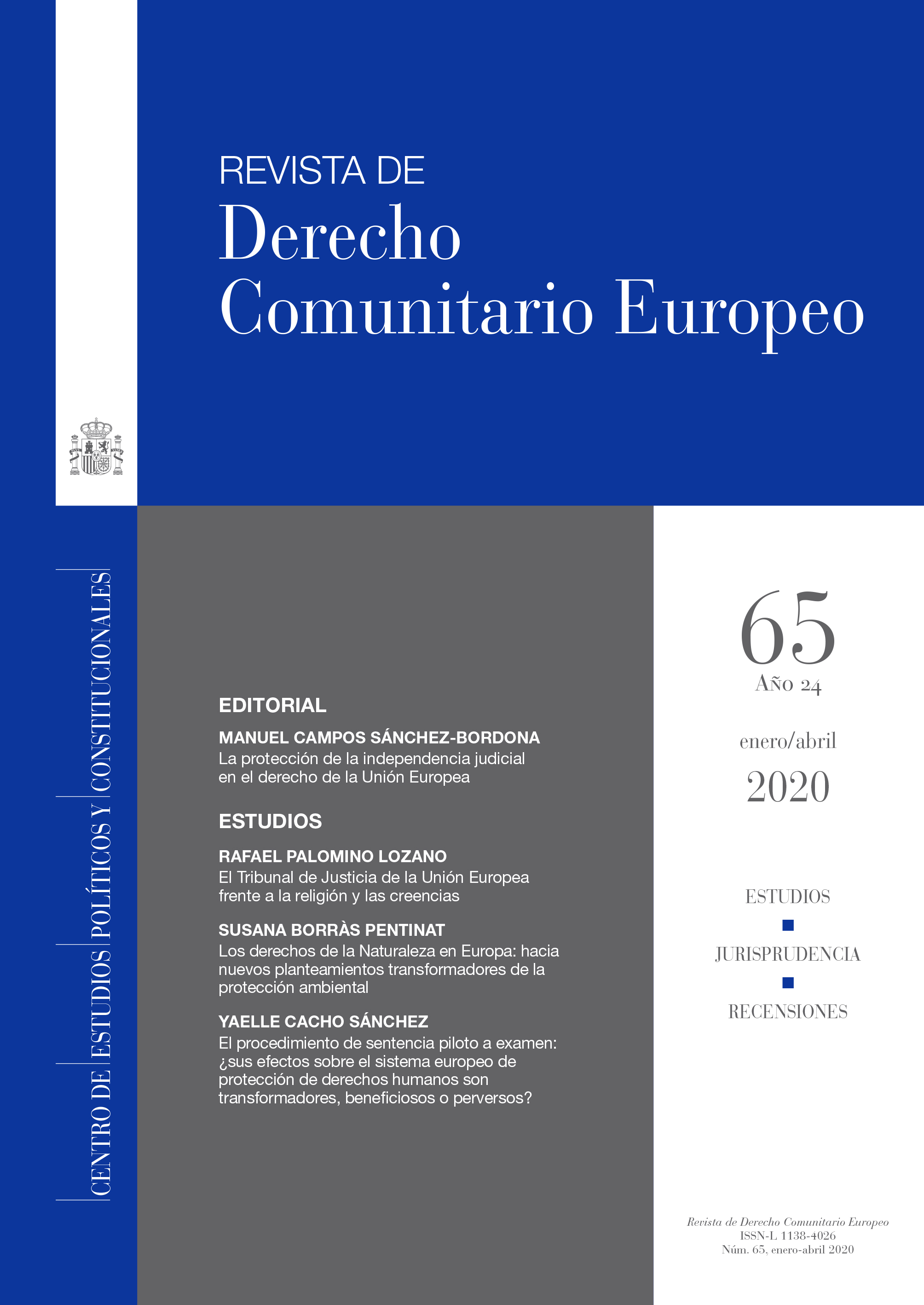La figura del prestador del servicio online y su responsabilidad tributaria. Comentario de la sentencia del TJUE OnlyFans
##plugins.pubIds.doi.readerDisplayName##:
https://doi.org/10.18042/cepc/rdce.77.07摘要
El auge de los negocios digitales ha suscitado cuestiones controvertidas en materia del IVA e incongruencias en las figuras tradicionales dentro de la operativa del impuesto, las cuales no abarcaban las especialidades de esta modalidad. Este estudio analiza el polémico caso resuelto por el Tribunal de Justicia de la Unión Europea (TJUE) en el asunto Fenix International Ltd. (plataforma conocida como OnlyFans), donde se cuestiona la validez del art. 9 bis del Reglamento de Ejecución (UE) 282/2011, en relación con la prestación de servicios por vía electrónica, con el objetivo de identificar al prestador del servicio y determinar si la plataforma actúa como intermediaria. En particular, se busca esclarecer si la empresa que gestiona la plataforma debe ser considerada como el prestador del servicio, convirtiéndose en sujeto obligado, o si los proveedores individuales que utilizan la plataforma son los responsables del IVA. Esta cuestión es esencial, ya que tiene implicaciones significativas para la recaudación impositiva y la regulación de los negocios digitales en la Unión Europea (UE). La sentencia citada se ha traducido en un precedente importante sobre cómo deben tratarse fiscalmente las operaciones en línea en un entorno empresarial en constante evolución.
##plugins.generic.usageStats.downloads##
##submission.downloads##
已出版
##submission.howToCite##
期
栏目
##submission.license##
En el momento en que una obra es aceptada para su publicación, se entiende que el autor cede a la RDCE en exclusiva los derechos de reproducción, distribución y, en su caso, venta de su manuscrito para su explotación en todos los países del mundo en formato de revista de papel, así como en cualquier otro soporte magnético, óptico y digital.
Los autores cederán también a la RDCE los derechos de comunicación pública para su difusión y explotación a través de intranets, internet y cualesquiera portales y dispositivos inalámbricos que decida el editor, mediante la puesta a disposición de los usuarios para consulta online de su contenido y su extracto, para su impresión en papel y/o para su descarga y archivo, todo ello en los términos y condiciones que consten en la web donde se halle alojada la obra. A su vez, la RDCE autoriza a los autores de los trabajos publicados en la revista a que ofrezcan en sus webs personales o en cualquier repositorio de acceso abierto una copia de esos trabajos una vez publicados. Junto con esa copia ha de incluirse una mención específica de la RDCE, citando el año y el número de la revista en que fue publicado el artículo o nota de investigación y añadiendo, además, el enlace a la web de la RDCE.
Transcurrido un año desde su publicación, los trabajos pasarán a estar sujetos a la Licencia de reconocimiento de Creative Commons Reconocimiento-No comercial-Sin obra derivada 4.0 Internacional, que permite a terceros compartir la obra siempre que se indique su autor y su primera publicación en esta revista.
PLAGIO Y FRAUDE CIENTÍFICO
La publicación de un trabajo que atente contra los derechos de propiedad intelectual será responsabilidad de los autores/as, que serán los que asuman los conflictos que pudieran tener lugar por razones de derechos de autor. Los conflictos más importantes pueden darse por la comisión de plagios y fraudes científicos.
Se entiende por plagio:
- Presentar el trabajo ajeno como propio.
- Adoptar palabras o ideas de otros autores sin el debido reconocimiento.
- No emplear las comillas u otro formato distintivo en una cita literal.
- Dar información incorrecta sobre la verdadera fuente de una cita.
- El parafraseo de una fuente sin mencionar la fuente.
- El parafraseo abusivo, incluso si se menciona la fuente.
Las prácticas constitutivas de fraude científico son las siguientes:
- Fabricación, falsificación u omisión de datos y plagio.
- Publicación duplicada.
- Conflictos de autoría


